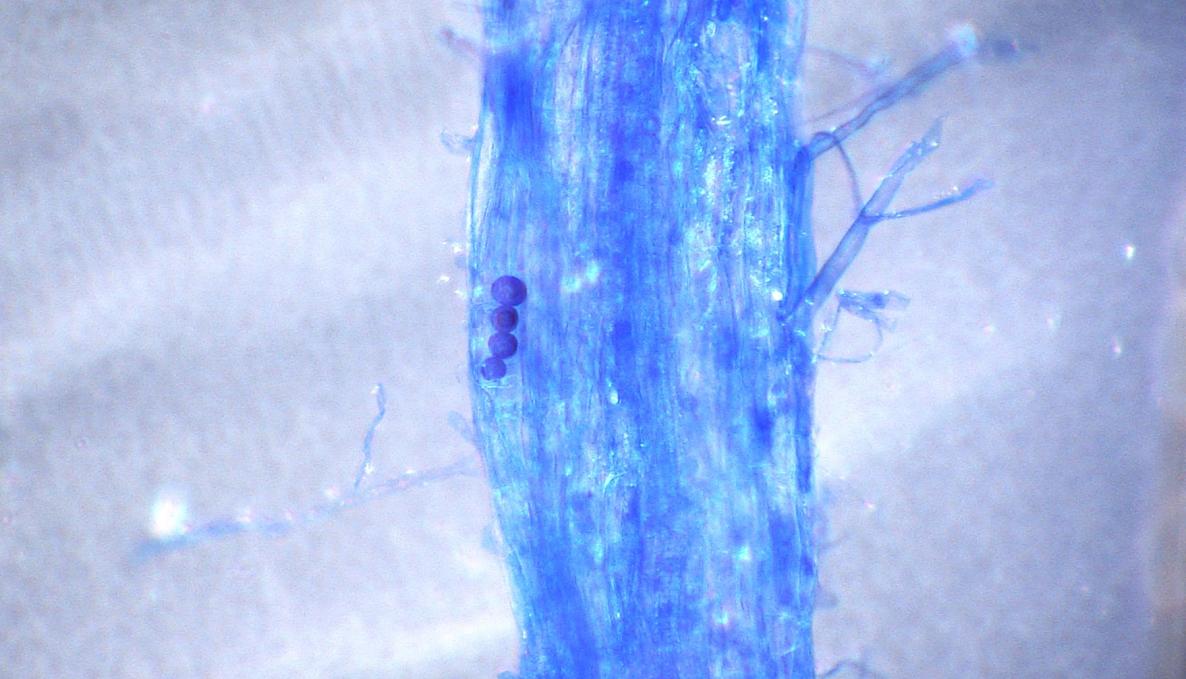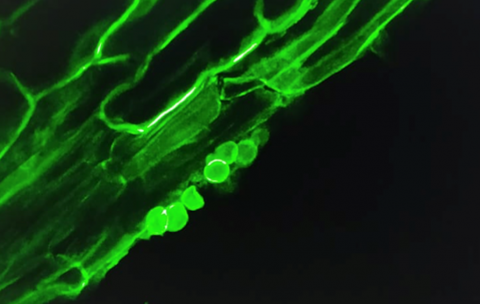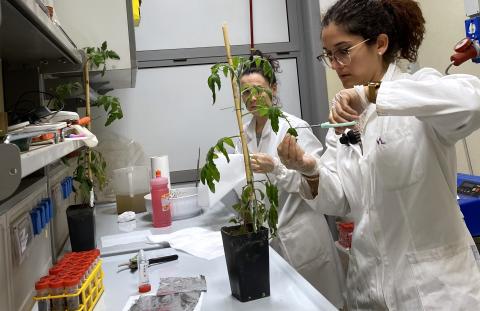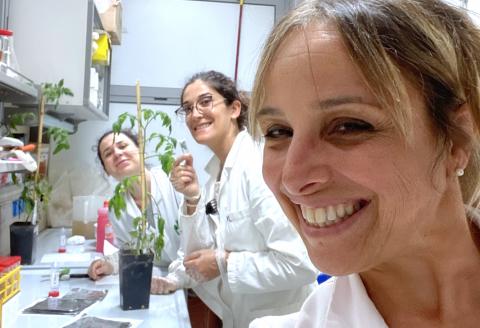Climate change and crop production: microscopic fungus, isolated in the Thar Desert (India), improves tomato resistance to water stress. Possible strong impact on other crops as well

In agriculture, saving water and maintaining product quality is a primary goal, which can be achieved thanks to a microscopic fungus that improves tomato resistance to water stresses. Early results, coming from a research project of the Sant'Anna School, are promising for other crops as well.
In recent years, climate change has led to many consequences, such as low availability of water for agricultural purposes. In the summer months, suffering crops, dry rivers and prolonged water shortages bring the cultivated area into severe drought conditions, resulting in severe economic damage. In view of the reduction in water availability, being able to decrease water consumption in agriculture, while maintaining production, becomes an important and necessary goal.
The Sant'Anna School is making a contribution with the MICROBIOS project, coordinated by Elisa Pellegrino, researcher in the Plant-Soil Interactions Group of the Center for Research in Plant Production (Crop), which aims to develop soil microorganisms, assembled in consortia with biostimulating action, to be used to increase the resistance of agricultural crops and improve the quality of production.
The results on tomato plants are very promising, looking at the water requirements of this crop (a tomato needs about 13 liters of water to reach maturity), but they may also have a strong impact on other crops in the context of climate change.
In the study conducted as part of the MICROBIOS project funded by the Tuscany Region, on the Fund for Development and Cohesion and by DND Biotech srl, and carried out in collaboration with Eurofins Genomics Italy, after identifying a beneficial endophytic fungus, Serendipita indica, the protocol for cultivation and inoculation of the fungus itself and its associated bacteria on tomato plants under critical water conditions was developed.
The studies revealed how the inoculation of this microscopic fungus on the tomato plant, under conditions of halving water volumes and total deprivation, enhanced plant growth by providing high protection against both biotic stresses, caused by other living things (bacteria, viruses, insects), and abiotic stresses, caused by an adverse environmental factor, such as drought, even during the plant's recovery phases.
The selected fungus, cultivable axenically i.e., in purity, was isolated in the Thar Desert, India. The effects of the fungus were evaluated at half watering volumes and water deprivation cycles. Endophyte-colonized tomato plants subjected to stress (-50% water) showed about +15% more development than untreated plants, while those subjected to water deprivation for seven-day cycles reported 32% more development on average.
Fungus-colonized plants subjected to drought cycles showed better stomatal conductance than well-watered plants, improving the relative water content of leaves, which normally drops significantly under stress. For every molecule of CO2 absorbed there is an expenditure of water by the leaf, and it is therefore important to be able to improve plant conductance by facilitating the diffusion of H2O outward and CO2 inward.
Microbial consortia, such as Serendipita indica and associated bacteria, are increasingly being used as biostimulants, following the natural reduction of beneficial soil microorganisms, both in quantity and quality, due to the spread of intensive agronomic practices.
In the course of the research, the bacteria associated with the inoculated fungus were also determined by state-of-the-art sequencing, a consortium representing a very heterogeneous gene pool from which strains with excellent biostimulant functions for agricultural crops could be obtained.
The project funded a two-year research grant to Valentina Lazazzara (Sant'Anna School), who is now working as a researcher at the Institute for Sustainable Plant Protection, CNR, Florence. For her studies within MICROBIOS, Valentina Lazazzara received an award from the European Society of Microbiology (FEMS) in Hamburg, Germany, for the following publication, "Valentina Lazazzara, Laura Ercoli, Elisa Pellegrino, 2023. Serendipita indica confers drought tolerance in tomato by stimulating the expression of drought stress-related. FEMS Conference 9-13 July 2023, Hamburg, Germany."
Cover Photo: Spores of the beneficial endophytic fungus Serendipita Indica inoculated into the root of tomato plant seen under a light microscope
Gallery: Spores and mycelium of Serendipita Indica under a fluorescence microscope (1) , Valentina Lazazzara and Irene Nicolini during laboratory experiments (2), Spores of Serendipita indica in axenic culture, in purity, in liquid medium (3), from right Elisa Pellegrino, Valentina Lazazzara and Irene Nicolini in the CROP Center laboratories (4)








